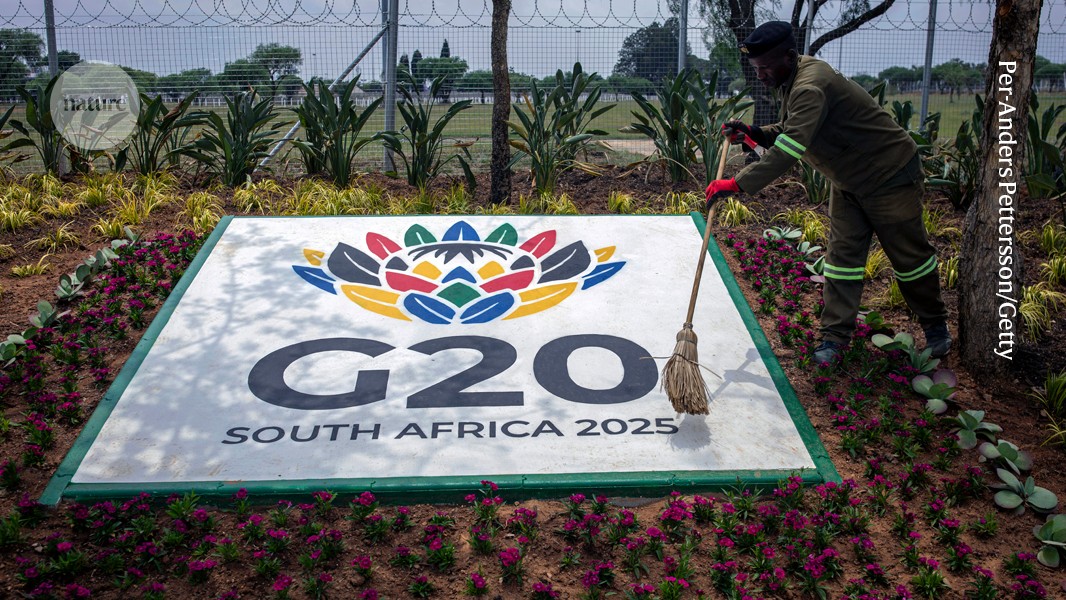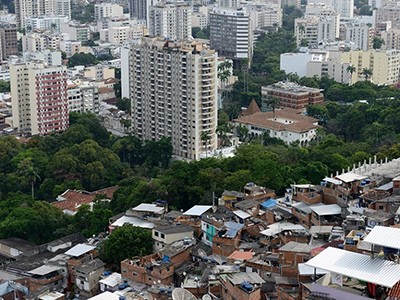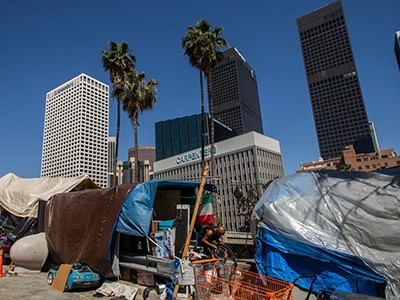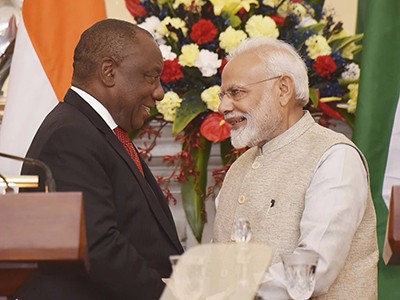You have full access to this article via your institution.
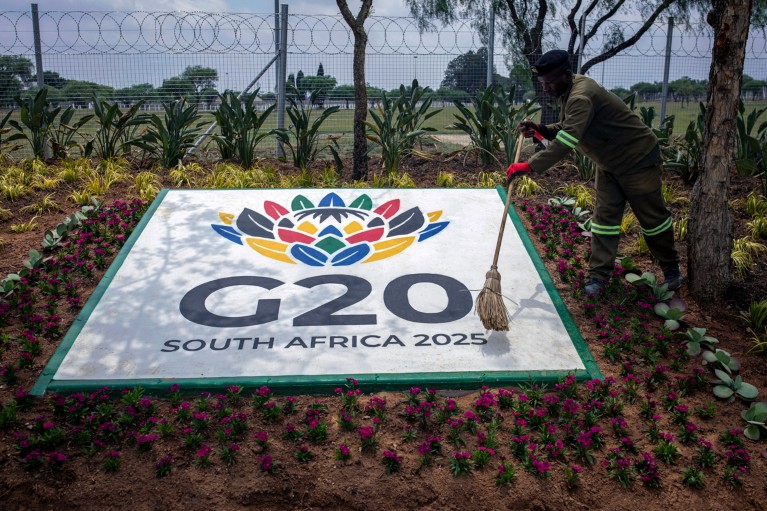
Preparations begin for the G20 summit in Johannesburg, South Africa.Credit: Per-Anders Pettersson/Getty
Next week, Johannesburg in South Africa will host a historic meeting of the G20, an annual forum of the leaders of the world’s major economies. This will be the first meeting of the G20 leaders to be held in Africa. It will also be the first that a member country — the United States — has declined to attend.
Reducing inequality benefits everyone — so why isn’t it happening?
The United States did attend preparatory meetings leading up to the G20, at which it opposed much of South Africa’s planned agenda, which includes debt reduction, boosting climate finance and fighting inequality. These are global priorities and are in line with the latest evidence from research. But the United States has said that it will boycott the meeting, citing false allegations of targeted violence against white South Africans.
South Africa must not be discouraged. Its priorities for the meeting are appropriate to the challenges that the world faces. And it rightly has the support of most other G20 members, which now include the African Union, an organization of 55 member states.
Debt has many low- and middle-income countries (LMICs) in a chokehold. The amounts that these nations owe to foreign creditors have been rising persistently for around two decades. Some of this is historical debt that has been repeatedly rolled over. But countries have also accumulated debt as a result of more recent events, such as the COVID-19 pandemic, as well as through paying for damage caused by — and adaptation to — climate change. And, in the past few years, rising interest rates have increased the cost of debt repayments. At the same time, international aid is being slashed.
Why the world cannot afford the rich
According to a report published last week by Chatham House, a think tank in London, the 17 largest international donors are expected to cut annual aid spending by more than US$60 billion between 2023 and 2026 (see go.nature. com/446zfam). This amounts to almost one-third of expected aid. The health systems of some of the world’s poorest countries are wholly reliant on such assistance.
According to data from the United Nations, what developing countries currently owe to foreign creditors is almost equal to what these countries earn in exports (see go.nature.com/43b4uka). In such situations, creditors require governments to raise taxes or reduce public spending. However, nations tend to be reluctant to do the latter because it means cutting funding for essential services such as health and education. And, as a recent analysis from the World Bank reports, tax collection in LMICs has been falling as a share of gross domestic product (see go.nature.com/4orgx8i).
These countries also need more money to help them protect people and infrastructure against climate change, which they have had little part in causing. So far, richer countries have agreed to take the lead in contributing an average of $300 billion a year in climate finance, but most of this will be in the form of loans, adding to the debt burden. It is clear that South Africa and its G20 partners are right to put debt reduction at the top of the world’s economic agenda.
Researchers back African Union to join G20 group of largest economic powers
The host country also wants to talk about inequality, including the central role research could have in reducing it. Ahead of the meeting, South Africa commissioned a group of researchers and development practitioners to summarize and present the latest research on the topic, such as the current prevalence and causes of inequality, and proven ways to reduce it (see go.nature.com/4ia4jmi). The study was led by economist Joseph Stiglitz at Columbia University in New York City. It recommends that the G20 create an international panel of researchers on inequality. This would be similar to the Intergovernmental Panel on Climate Change in that it would periodically assess the findings and put them before policymakers, so that all involved are better equipped to tackle the problem.
The G20’s analysis came to a conclusion that reducing inequality can be good for economic performance. This follows earlier research, such as that by the social epidemiologists Kate Pickett and Richard Wilkinson at the University of York, UK, who found that when governments take steps to shrink the gap between the incomes and wealth of the richest and the poorest, overall, everyone benefits (R. G. Wilkinson and K. E. Pickett Nature 627, 268–270; 2024). But many governments have not built this evidence into policymaking, instead regarding inequality as being unavoidable, if not desirable, and a driver of economic growth.
At the end of the meeting, South Africa will hand over the G20 chair to next year’s host, the United States — one of the world’s most unequal high-income countries when it comes to wealth and income. As the most recent past host, South Africa will be one of the ‘troika’ of countries responsible for steering the 2026 G20 meeting, a group that also includes the country due to host the following year, the United Kingdom.
The United Kingdom has supported South Africa’s priorities this year and should continue to advocate for them. There will be an empty seat in Johannesburg next week, and uncertainty about the direction in which the United States, as host, will take the G20 next year. However, the issues that South Africa has raised should be priorities for all nations.


